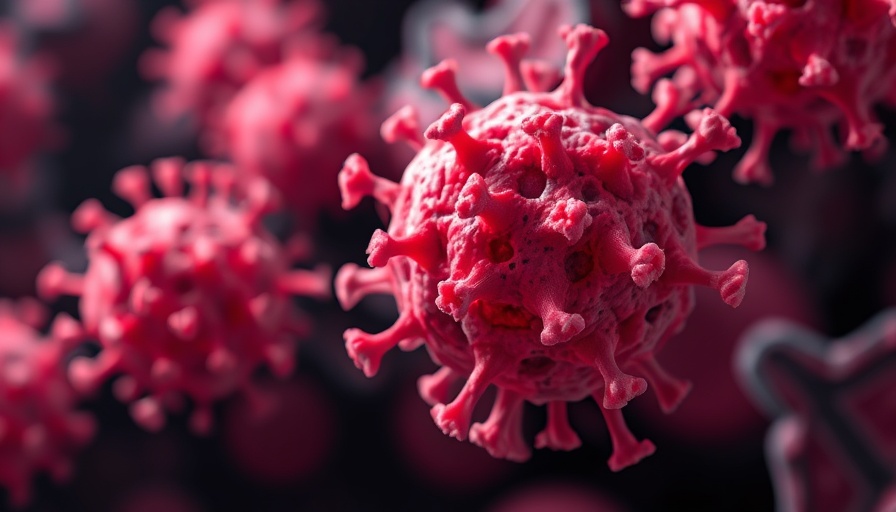
Understanding the Rise of Cancer in Younger Adults
As alarming as it may seem, cancer rates among younger adults are rising, prompting researchers to investigate the underlying causes. Historically, cancer was largely associated with older populations, but recent data paints a different picture. Studies reveal an unsettling trend: an increasing number of adults aged 20 to 49 are being diagnosed at higher rates than previous decades. This shift raises questions regarding lifestyle factors, environmental influences, and the role of genetics.
Changing Lifestyles and Their Impact
The modern lifestyle often includes high stress, irregular gym habits, and poor nutrition, which can contribute to various health risks, including cancer. As busy professionals, many may substitute fast food for home-cooked meals and overlook exercise due to demanding schedules. According to health experts, the culmination of these factors could significantly impact the risk of certain cancers, particularly ones such as colorectal and breast cancer. Moreover, increased alcohol consumption and smoking habits can exacerbate these risks.
Environmental Factors: What’s in Our Surroundings?
Another considerable aspect researchers are examining is the impact of environmental changes. Pollution, chemicals in food production, and exposure to various toxins present in urban settings may play a significant role in rising cancer rates among younger demographics. In cities like Atlanta, where industrial activities contribute to pollution, residents are rightfully concerned. The link between environmental toxins and cancer is gaining attention, underlining the importance of assessing our surroundings and seeking cleaner, greener communities.
Genetics: The Unseen Influence
While lifestyle and environmental factors are crucial, it's essential to recognize the role of genetics in cancer risk. Research shows that hereditary factors can increase one's susceptibility to specific cancer types. This insight highlights the need for younger individuals, particularly those with a family history of cancer, to engage in regular screenings and maintain open dialogues with healthcare providers.
Operationalizing Awareness and Prevention Strategies
Raising awareness is the first step in addressing this growing crisis. Community programs focusing on fitness, nutrition, and mental health play a vital role in promoting wellness among younger adults. Engaging in regular physical activity, following balanced diets, and managing stress through mindfulness can mitigate risks. Furthermore, initiatives that promote regular health screenings can foster early detection, improving outcomes for those diagnosed with cancer.
Healthy Lifestyle Choices: Your Action Plan
As men aged 35-55 who are professionals, safeguarding your health is paramount. Consider incorporating the following strategies into your lifestyle:
1. **Regular Exercise**: Aim for at least 150 minutes of moderate aerobic activity per week.
2. **Balanced Nutrition**: Make conscious dietary choices. Include more fruits, vegetables, and whole grains while reducing processed food.
3. **Limit Alcohol and Avoid Smoking**: Both habits have well-documented links to numerous cancers.
4. **Prioritize Mental Health**: Stress management techniques such as yoga, meditation, or even engaging in hobbies can play a critical role in overall well-being.
Encouraging a Collective Response
The rise in cancer rates in younger adults isn't a challenge that can be tackled alone. It calls for a collective response—engaging communities, stakeholders, and health professionals in the fight against this pressing health issue. Whether through workshops, fitness challenges, or awareness campaigns, every step counts towards a healthier, cancer-free future.
Conclusion: Taking Charge of Your Health
In conclusion, the increasing rates of cancer among younger adults should not just be viewed as a statistic. Rather, it should prompt individuals to take charge of their health proactively. Engaging in a healthy lifestyle and encouraging your peers to do the same is essential for combating this trend. Remember, taking small, actionable steps today can lead to significant health benefits in the future.
 Add Row
Add Row  Add
Add 




Write A Comment